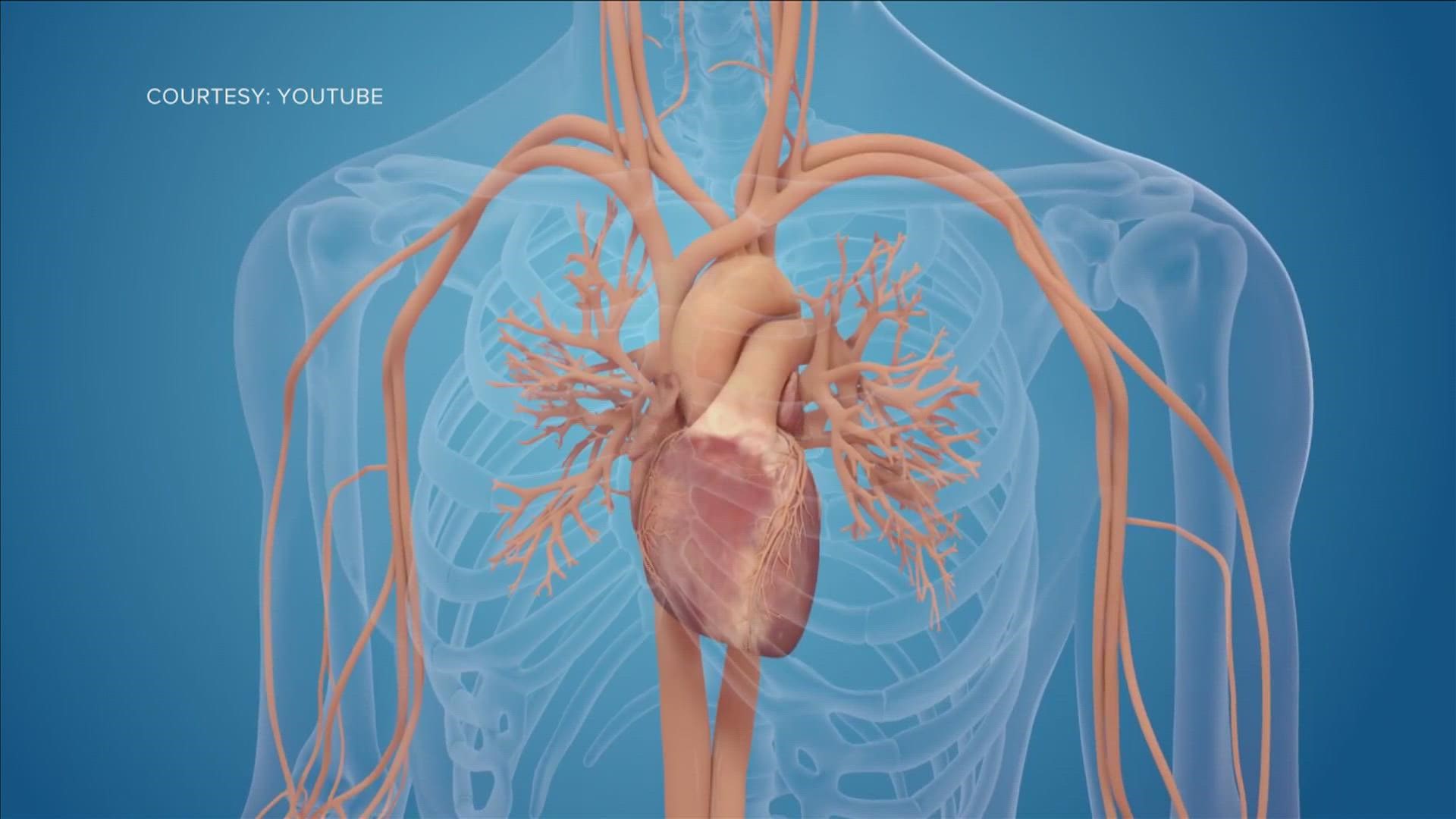MEMPHIS, Tenn. — Pam Lawhead said her heart started to act up in 1977. While she's been very diligent about visiting the doctor, it wasn't until last year that one noticed something odd.
"My primary [doctor] said, 'well, I can sort of hear a cat purring in your chest,'" said Lawhead. "Every doctor I went to asked if I had someone see my heart. By the time I've got time to replace my valve, It was an in and out overnight procedure, which was to me, technologically remarkable."
Saint Francis said TAVR is an acronym that stands for transcatheter aortic valve replacements, and has become an increasingly popular procedure for heart valve replacements over the last 10 years.
The aortic heart valve sits at the base of the aorta - the main artery leaving the heart. It is designed to keep blood flowing in the correct direction. If it doesn't work properly, blood flow could be drastically reduced or reversed, leading to deadly heart issues.
TAVR is a minimally-invasive procedure that doesn't rely on open heart surgery to access and replace the valve, meaning recovery times are drastically reduced.
"I went to the hospital on the 19th of June," said Lawhead. "On the 26th of September, I was in Venice."
She did so well, in fact, that doctors let the 77-year-old go home the very next day.
"There's just there's no pain," Lawhead said. "There's no anxiety and rewards are just numerous."
RELATED: This Memphis heart transplant survivor wants you to know why being an organ donor is so important
Tuesday, February 22 is Heart Valve Disease Awareness day, and hospitals around the country used the day to draw peoples' attention to the risks and symptoms of the disease.

